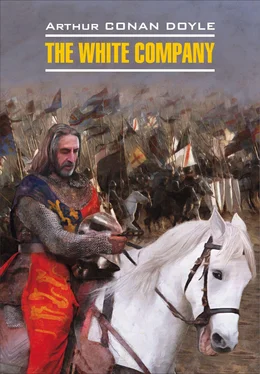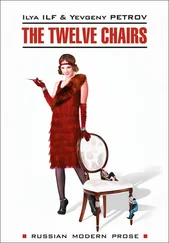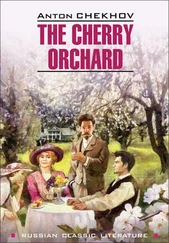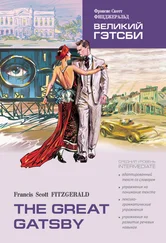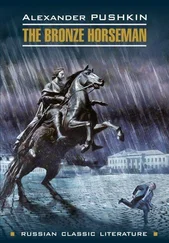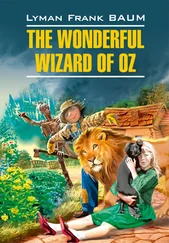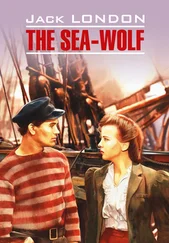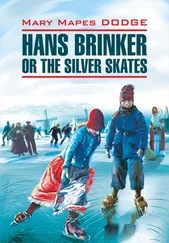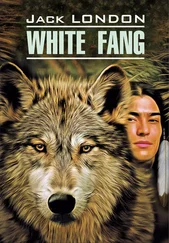“I have heard much even in the quiet cloisters of these new and dreadful engines,” quoth Alleyne. “It is said, though I can scarce bring myself to believe it, that they will send a ball twice as far as a bowman can shoot his shaft, and with such force as to break through armour of proof.”
“True enough, my lad. But while the armourer is thrusting in his devil’s dust, and dropping his ball, and fighting his flambeau , I can very easily loose six shafts, or eight maybe, so he hath no great vantage after all. Yet I will not deny that at the intaking of a town it is well to have good store of bombards. I am told that at Calais they made dints in the wall that a man might put his head into. But surely, comrades, someone who is grievously hurt hath passed along this road before us.”
All along the woodland track there did indeed run a scattered straggling trail of blood-marks, sometimes in single drops, and in other places in broad ruddy gouts, smudged over the dead leaves or crimsoning the white flint-stones.
“It must be a stricken deer,” said John.
“Nay, I am woodman enough to see that no deer hath passed this way this morning; and yet the blood is fresh. But hark to the sound!”
They stood listening all three with sidelong heads. Through the silence of the great forest there came a swishing, whistling sound, mingled with the most dolorous groans, and the voice of a man raised in a high quavering kind of song. The comrades hurried onwards eagerly, and topping the brow of a small rising they saw upon the other side the source from which these strange noises arose.
A tall man, much stooped in the shoulders, was walking slowly with bended head and clasped hands in the centre of the path. He was dressed from head to foot in a long white linen cloth, and a high white cap with a red cross printed upon it. His gown was turned back from his shoulders, and the flesh there was a sight to make a man wince, for it was all beaten to a pulp, and the blood was soaking into his gown and trickling down upon the ground. Behind him walked a smaller man, with his hair touched with grey, who was clad in the same white garb. He intoned a long whining rhyme in the French tongue, and at the end of every line he raised a thick cord, all jagged with pellets of lead, and smote his companion across the shoulders until the blood spurted again. Even as the three wayfarers stared, however, there was a sudden change, for the smaller man, having finished his song, loosened his own gown and handed the scourge to the other, who took up the stave once more and lashed his companion with all the strength of his bare and sinewy arm. So, alternately beating and beaten, they made their dolorous way through the beautiful woods and under the amber arches of the fading beech-trees, where the calm strength and majesty of Nature might serve to rebuke the foolish energies and misspent strivings of mankind.
Such a spectacle was new to Hordle John and to Alleyne Edricson; but the archer treated it lightly, as a common matter enough.
“These are the Beating Friars, otherwise called the Flagellants,” quoth he. “I marvel that ye should have come upon none of them before, for across the water they are as common as gallybaggers. I have heard that there are no English among them, but that they are from France, Italy, and Bohemia. En avant, camarades! that we may have speech with them.”
As they came up to them, Alleyne could hear the doleful dirge which the beater was chanting, bringing down his heavy whip at the end of each line, while the groans of the sufferer formed a sort of dismal chorus. It was in old French, and ran somewhat in this way:
Or avant, entre nous tous frères
Battons nos charognes bien fort
En remembrant la grant misère
De Dieu et sa piteuse mort,
Qui fut pris en la gent amère
Et vendus et trais à tort
Et bastu sa chair, vierge et dère
Au nom de oe battons plus fort . [83] Вперед, за благодать Святую — Все как один. Настал черед, Ударим дружно, памятуя о смерти, Господа. Вперед! Господь наш схвачен был врагами, Он злые муки претерпел И принял смерть… Победа с нами! Вперед, кто доблестен и смел! (пер. с франц.)
Then at the end of the verse the scourge changed hands and the chanting began anew.
“Truly, holy fathers,” said the archer in French as they came abreast of them, “you have beaten enough for today. The road is all spotted like a shambles at Martinmas [84] Martinmas – день святого Мартина, 11 ноября
. Why should ye mishandle yourselves thus?”
“ C’est pour vos péchés – pour vos péchés [85] Ce’st pour vos péchés – pour vos péchés – ( фр. ) Это за ваши грехи, за ваши грехи
,” they droned, looking at the travellers with sad lack-lustre eyes, and then bent to their bloody work once more without heed to the prayers and persuasions which were addressed to them. Finding all remonstrance useless, the three comrades hastened on their way, leaving these strange travellers to their dreary task.
“ Mon Dieu! [86] Mon Dieu! – ( фр. ) Боже мой!
” cried the bowman, “there is a bucketful or more of my blood over in France, but it was all spilled in hot fight, and I should think twice before I drew it drop by drop as these friars are doing. By my hilt! our young one here is as white as a Picardy cheese. What is amiss then, mon cher [87] mon cher – ( фр. ) дорогой мой
?”
“It is nothing,” Alleyne answered. “My life has been too quiet. I am not used to such sights.”
“ Ma foi !” the other cried, “I have never yet seen a man who was so stout of speech and yet so weak of heart.”
“Not so, friend,” quoth big John; “it is not weakness of heart, for I know the lad well. His heart is as good as thine or mine, but he hath more in his pate than ever you will carry under that tin pot of thine, and as a consequence he can see further into things, so that they weigh upon him more.”
“Surely to any man it is a sad sight,” said Alleyne, “to see these holy men, who have done no sin themselves, suffering so for the sins of others. Saints are they, if in this age any may merit so high a name.”
“I count them not a fly,” cried Hordle John; “for who is the better for all their whipping and yowling? They are like other friars, I trow, when all is done. Let them leave their backs alone, and beat the pride out of their hearts.”
“By the three kings! there is sooth in what you say,” remarked the archer. “Besides, methinks if I were le bon Dieu [88] le bon Dieu – ( фр. ) нашим добрым Господом
, it would bring me little joy to see a poor devil cutting the flesh off his bones; and I should think that he had but a small opinion of me, that he should hope to please me by such provost-marshal work. No, by my hilt! I should look with a more loving eye upon a jolly archer who never harmed a fallen foe and never feared a hale one.”
“Doubtless you mean no sin,” said Alleyne. “If your words are wild, it is not for me to judge them. Can you not see that there are other foes in this world besides Frenchmen, and as much glory to be gained in conquering them? Would it not be a proud day for knight or squire if he could overthrow seven adversaries in the lists? Yet here are we in the lists of life, and there come the seven black champions against us: Sir Pride, Sir Covetousness, Sir Lust, Sir Anger, Sir Gluttony, Sir Envy, and Sir Sloth. Let a man lay those seven low, and he shall have the prize of the day, from the hands of the fairest queen of beauty, even from the Virgin Mother herself. It is for this that these men mortify their flesh, and to set us an example, who would pamper ourselves overmuch. I say again that they are God’s own saints, and I bow my head to them.”
Читать дальше
